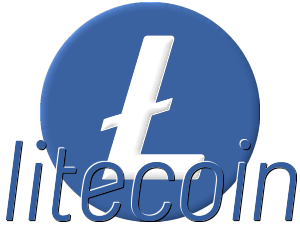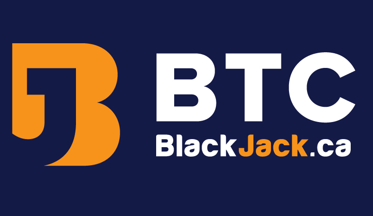Litecoin Casinos Canada – How and Where to Buy, Sell, and Bet with LTC.

Litecoin is a crypto currency some call the ‘digital silver‘, to Bitcoin‘s ‘digital gold‘. Introduced in 2011, it was one of the very first “altcoins” (i.e. alternative to Bitcoin). More importantly, it was one of very few to actually survive the onslaught of bit-booming altcoin births that occurred between 2011-2013. Like its BTC predecessor from which it was forked, Litecoin (LTC) materialized as an unregulated, decentralized, virtual form of currency, capable of being anonymously bought, sold, and bartered.
The vision behind LTC was to create a digital token similar to Bitcoin, but better; one that individuals can mine, recode and transfer at a faster rate. At its launch, LTC was running at about 4x the speed of BTC. It also operates on a proof-of-work algorithm, effectively reducing commission fees.
A Better Version of Bitcoin…
As a crypto currency, Litecoin ranks right up there with the most trustworthy digital coins in the world, alongside Bitcoin and Ethereum. Its creators promote it as an “open source, global payment network” capable of “instant, near-zero cost payments”. Being a ‘better version of Bitcoin’, it’s no surprise that it shares a higher price value; hardly comparable to that of BTC, but easily among the most valuable digital tokens on the market.
After opening at about US$0.30 in 2011, it slowly rose to around $5 on November 18, 2013. Ten days later, it had soared to $50. It’s had two major spikes since then, jumping to over $400 in December 2019, and again to over $300 in May 2021.
Today, Litecoin is one of the most popular cryptos; not just for trading, but for bartering. You can even use it to fund an online gambling account to play all your favorite casino games, like blackjack, video poker and slot machines. The trick is finding the right crypto casino that accepts LTC and Canadian players, while also offering the game(s) you want to play most. We’ll talk more about this in the text below, but first, let’s have a look back at Litecoin from its humble beginnings.
History of Litecoin – Building a Better Bitcoin
Since its 2011 launch by creator Charlie Lee, Litecoin has maintained an impressively consistent ranking in the crypto world’s top 10 for capitalization. We have Lee’s conceptualization of a ‘quicker, cheaper Bitcoin’ to thank for it. All it really took was a few minor tweaks to the Blockchain protocol, combined with some creative marketing, to catapult the new token into stardom.
LTC’s success became undeniably evident in late 2013 when it’s value spiked to around US$40. Like most fads, interest (and value) soon waned. It would be years before LTC saw another big price hike, spurred on by the token’s listing on popular exchange service, Coinbase, in 2017. As the token soared, so did creative interests. A number of developers began to see Litecoin as the perfect guinea pig for testing new features – features they thought would be ideal for Bitcoin, but were afraid to implement on the higher-priced token without running on a “test network” first.
To this day, Litecoin plays the role of crash test dummy for BTC and other altcoins running on the blockchain network. It was the breeding ground for major upgrades like SegWit, Atomic Swaps, and the Lightning Network. Now, after spending more than ten years at the top of the altcoin totem pole, it’s clear that Litecoin isn’t going anywhere anytime soon.
Key Differences and Similarities Between LTC and BTC
When Charlie Lee began creating Litecoin, he kept most of Bitcoin’s qualities, but made a few fundamental changes to mold the crypto into something better, faster, and more cost effective. Most notably, he employed a Scrypt proof-of-work protocol in favor of BTC’s SHA-256.
By simply altering the proof-of-work, LTC is able to operate four times faster. Where BTC takes 10 minutes to mine a block, LTC takes about 2.5 minutes. The total number of units also increased four times, from 21 million to 84 million. And where BTC takes 2 weeks to alter its block mining difficulty, LTC’s difficulty alters every two days.
Pretty much everything else about these two cryptos is identical (except the price, of course). That includes the fact that…
Litecoin is Not Truly Anonymous
Just like Bitcoin, Litecoin is not truly anonymous. Its public blockchain operates “pseudo-anonymously”. What this means is that, to the untrained eye, every transaction appears to be anonymous, visible as nothing more than a long alphanumeric strain. These letters and numbers identify wallets and transactions, but don’t appear to reveal anything more about those facilitating the transfers.
Under deeper blockchain scrutiny, however, all those numbers can be traced back to their origin. All it takes is someone determined enough to identify the source – someone like a hacker, or perhaps a government employee. If you were hoping to use crypto currency for some purpose that requires absolute secrecy, with no possibility of being identified, Litecoin is probably not the best choice for you.
Trading Litecoin: How to Buy LTC with CAD
As one of the world’s most popular cryptos, you’ll find there are many ways to acquire Litecoin. You can mine it, although it requires a special GPU setup. You can trade it directly, peer-to-peer. (We only recommend doing so when trading with people you know and trust.) You can even buy it from a local Bitcoin ATM machine, although the commission fees can be rather high. The most common, and certainly the easiest way to buy LTC, is to purchase it through an exchange service.
No matter how you choose to acquire Litecoin, you’re going to need somewhere to store it. So, let’s start there.
Compatible LTC Wallets
Choosing a wallet to hold Litecoin isn’t the easiest thing to do, mostly because there are so many options out there. Whenever you’re dealing in a specific crypto currency, I always recommend using the token’s native wallet; in this case, LiteWallet. Formerly known as Loafwallet, LiteWallet is the official wallet of LTC, developed by the Litecoin Foundation.
The LiteWallet available for desktop, Android and Apple devices. It allows users to send, receive and “hodl” Litecoin quickly and easily, in a secure environment. However, there is one drawback. Litecoin is the only crypto this wallet can hold.
If you’re looking for a more diverse wallet that can hold a variety of tokens, might I suggest Exodus. The Exodus Wallet is safe, secure, and extremely versatile, capable of holding 145+ different types of crypto, and growing. Exodus is available for desktop and mobile, and is also compatible with the Trezor hardware wallet. You can even use it as an exchange service for trading all compatible cryptos.
Litecoin Exchanges
If you’re going to hold your Litecoin in an Exodus wallet, it makes sense to buy your crypto on the Exodus Exchange, as you’ll already have easy access to it. However, as a top-tier token, any and every crypto trading service on the market will offer LTC on its platform. The question is, which platform should you use? Some are faster, more accessible, easier to navigate, or offer cheaper commission rates. The best thing you can do is research the available exchange platforms and see which one suits you best.
Bitcoin ATMs with Litecoin
Canada is home to just over 2,000 Bitcoin ATMs. Unlike most of today’s altcoins, each and every one of these machines offers users a chance to buy Litecoin (as well as Bitcoin and Ethereum); such is the advantage of dealing in top-tier crypto. All you’ll need is a debit card to buy it with, and a mobile wallet to store it.
This link will help you quickly find the nearest Bitcoin ATM selling LTC for CAD in Canada.
Mining Your Own Litecoins
Crypto mining isn’t the lucrative task it was a decade ago. In those days, all you needed was a computer with a decent CPU, a little spare time, and basic knowledge of the mining process. Now, mining has become so competitive, you need a superbly equipped GPU system and a large pool of miners to share in the workload.
A single block takes 2.5 minutes to mine, and nets the successful pool 12.5 LTC. However, the competition between pools is incredible. As for how the coins are distributed in the block-winning pool, the more ya users GPU contributes to mining, the more LTC that person gets for it.
Suffice it to say, unless you’re ready to go all in on mining, it’s hardly worth the effort. You can find out more about mining crypto currency here.
Litecoin Casinos Canada – Gamlbing with LTC
As I’ve said numerous times now, dealing with a top 10 crypto currency has its advantages. The ability to bet with LTC at online casinos is most definitely one of them. In our experience, about 75% of the world’s most reputable, Canadian-facing crypto casinos accept LTC payments. That means you’ll be able deposit, play, and cash out winnings in LTC.
All you’ll need is a wallet stocked with Litecoins, which you can acquire in various ways (see How to Buy LTC with CAD above). Using that wallet ID, you can transfer coins into your crypto casino wallet, and immediately begin playing your favorite games.
